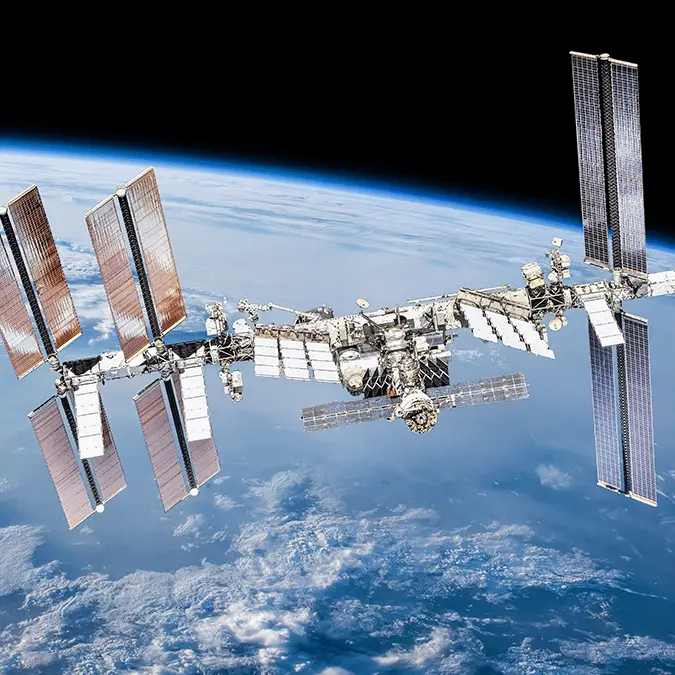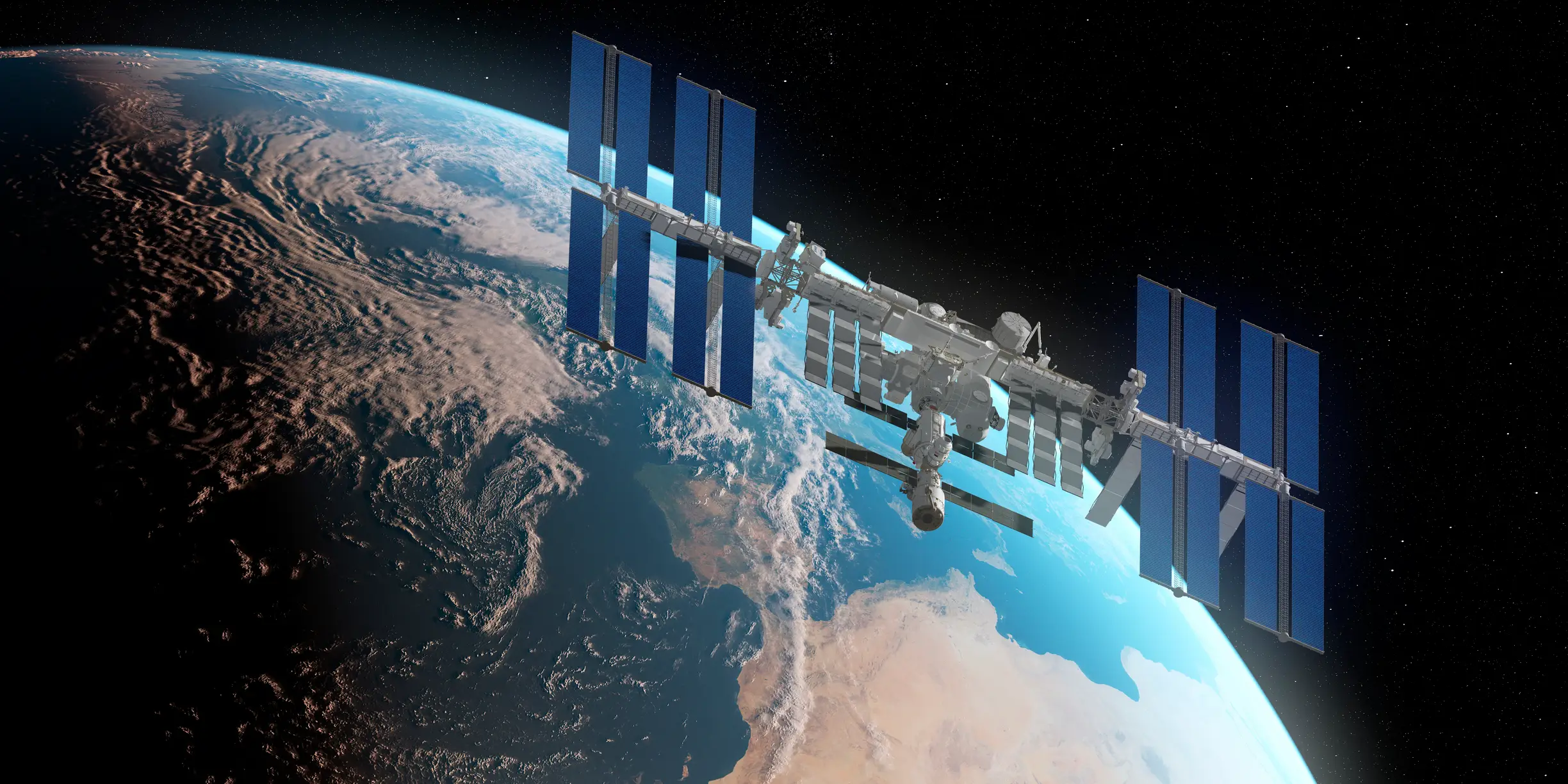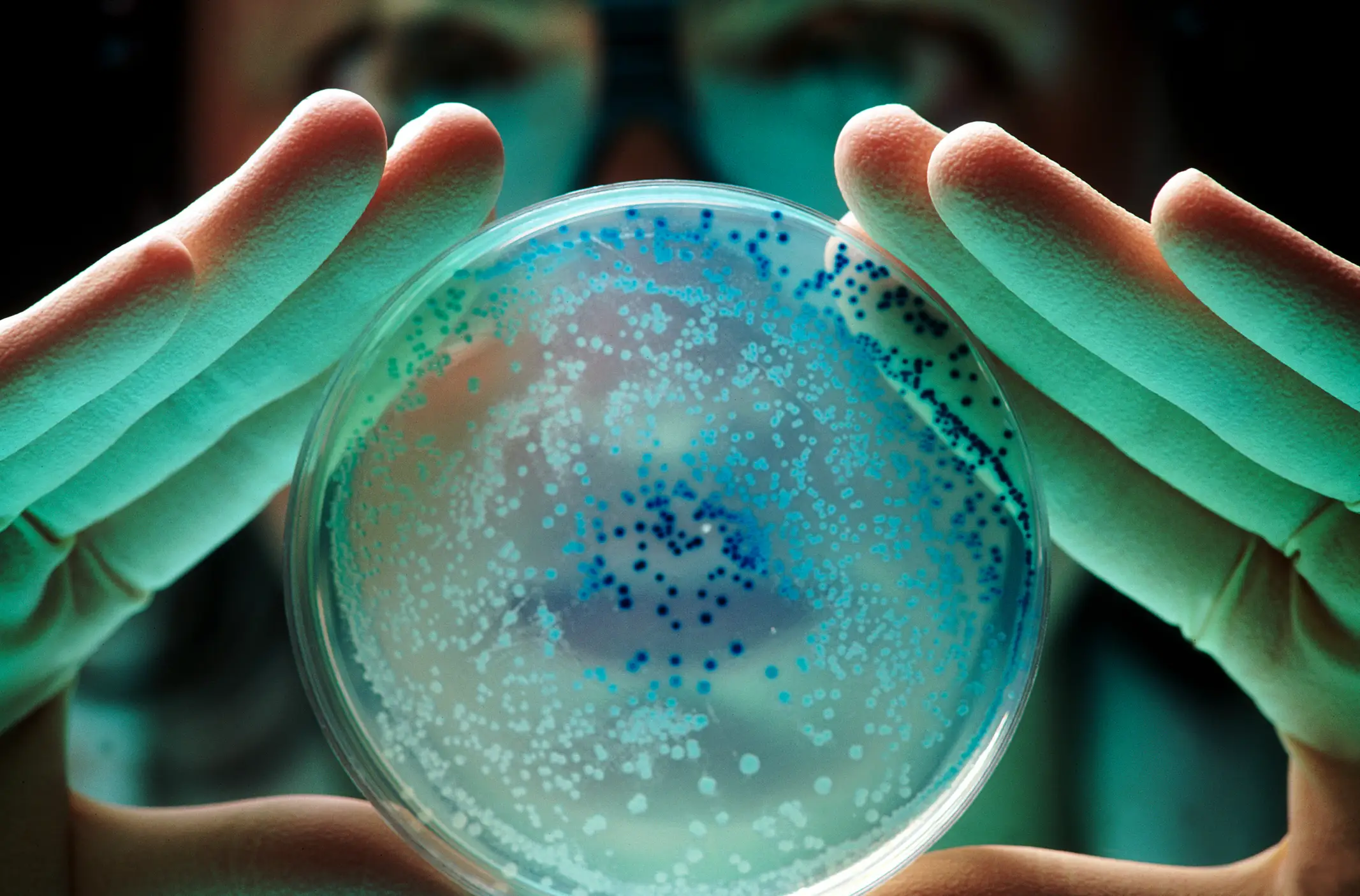
Scientists are warning that the International Space Station (ISS) might be too clean - and that’s a problem.
Astronauts at the ISS face all kinds of challenges, from radiation exposure to muscle loss due to weightlessness and, of course, the psychological effects of isolation.
But now scientists have identified an unexpected risk.
According to a new study, the astronauts on board the orbiting outpost could benefit from it being a little less clean.
Advert
The research suggests that the space station's sterile environment could be contributing to immune problems, skin conditions and other health issues experienced by astronauts during long missions. This is because the microbe environment in space is very different to here on Earth.

On Earth, humans are exposed to a diverse range of microbes on a regular basis. But in space, microbial diversity is severely limited, the study shows.
The microbes that do exist on the ISS primarily come from the astronauts themselves, which means they're basically stewing in their own bacteria without any input from the natural world.
As strange as it may seem, the team believe there's some benefit to the astronauts 'dirtying' the ISS with more microbes from nature, researchers suggest. This is similar to how gardening has been shown to boost the immune system by exposing people to healthy soil bacteria.
“There’s a big difference between exposure to healthy soil from gardening versus stewing in our own filth, which is kind of what happens if we're in a strictly enclosed environment with no ongoing input of those healthy sources of microbes from the outside,” said Rob Knight, from UC San Diego.

In the study, scientists worked with astronauts to swab 803 different surfaces in the ISS - 100 times more than in previous studies. From this, they created 3D maps that showed where different microbes and chemical residues were concentrated.
What they found was that human skin was the main source of microbes throughout the ISS.
Cleaning products and disinfectants were also present throughout the station.
Interestingly, different modules in the spacecraft had distinct microbial communities - with food-related microbes more common in dining areas.
They also discovered that the ISS' microbial environment was similar to that of a hospital, in which it lacks the free-living microbes found in soil, water and open-air environments. If astronauts are already experiencing health issues from a lack of microbial diversity on the ISS, what happens during longer missions to the Moon or Mars?
Either way, the study has shown the need for a more balanced microbial environment in space, which could mean that scientists will discover ways to intentionally introduce bacteria to future spacecraft.